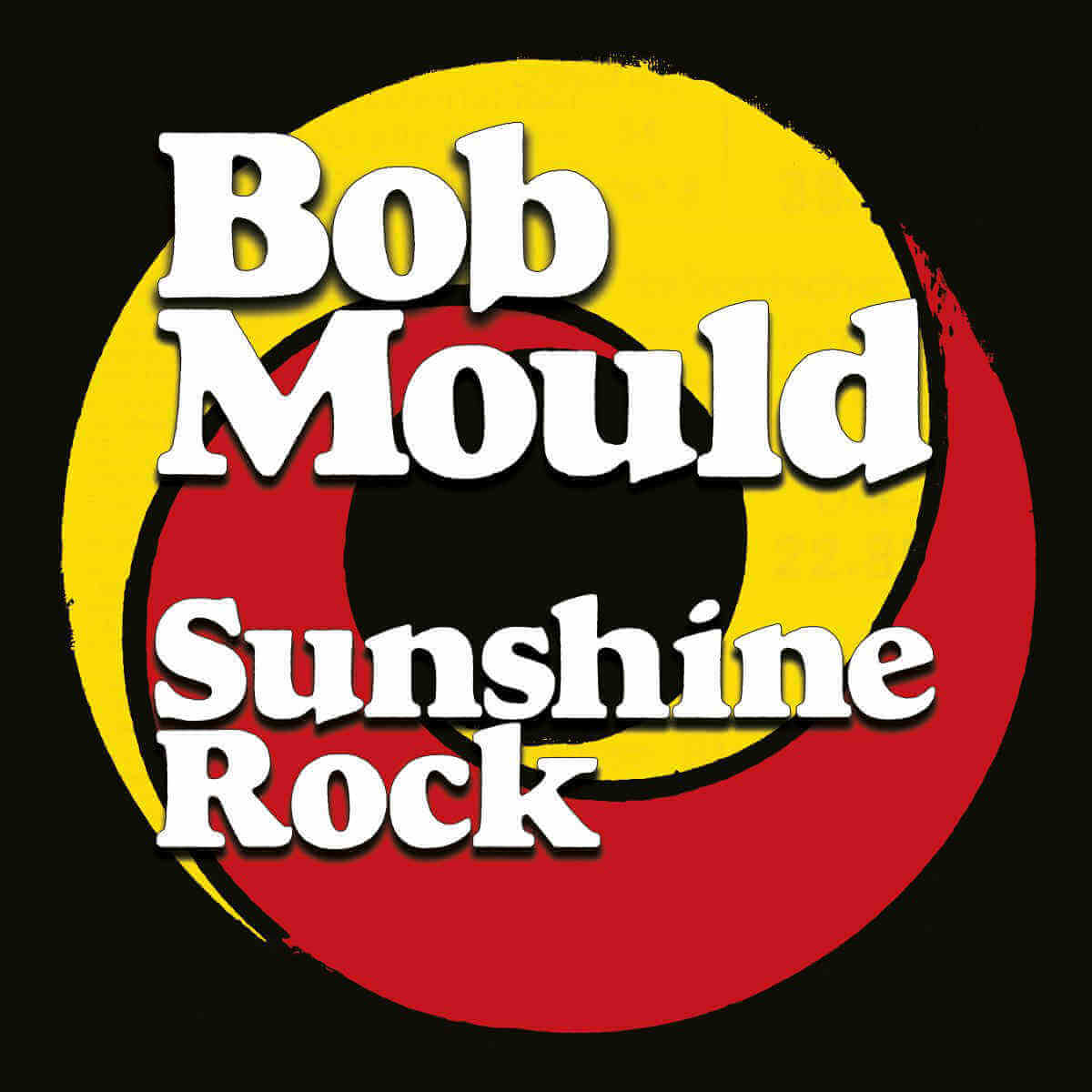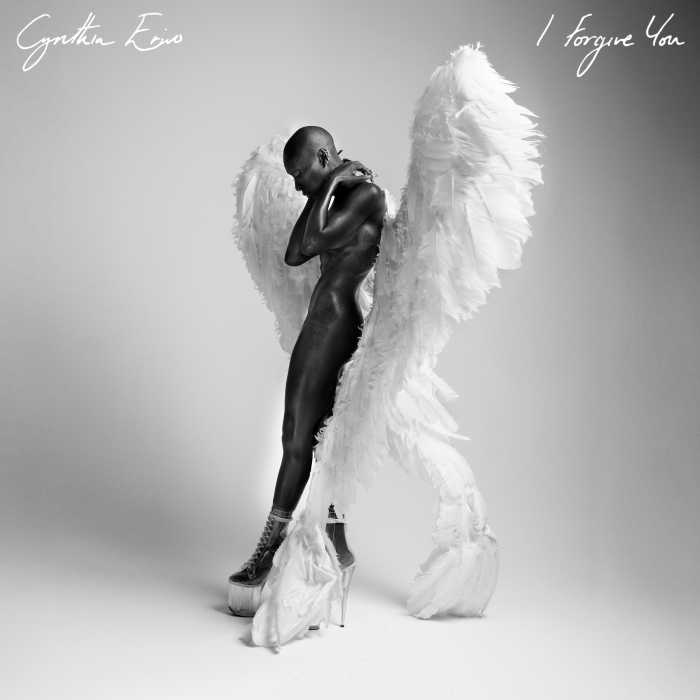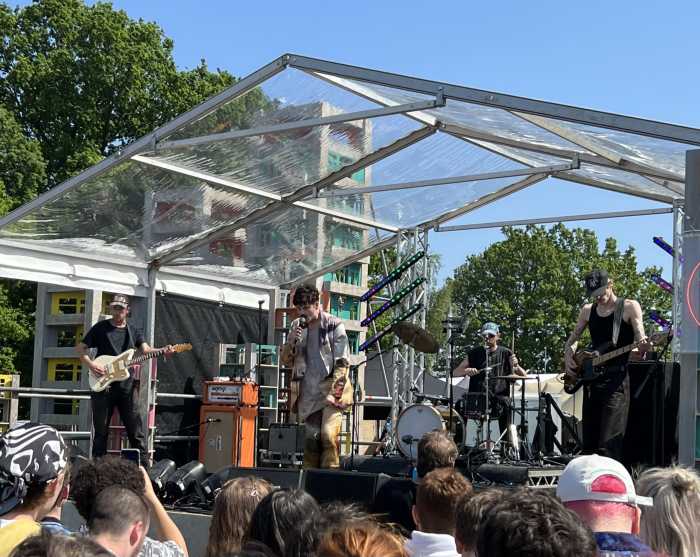On a first listen, Bob Mould’s latest album, “Sunshine Rock,” falls in line with most of the music he’s been making for decades. It’s full of songs that charge ahead at full speed, generally in a cheerful mood. It even brings back memories of both of his former bands, Hüsker Dü and Sugar. Back in the ‘80s, Mould’s guitar sound in Hüsker Dü distinguished itself, especially in the hardcore punk scene where the band started out, by his use of a chorus pedal to make it sound more enveloping than mere volume could produce. His guitar work on “Sunshine Rock” is loud, distorted, and trebly. Repeated listens reveal detail in Mould’s production. Both he and Jon Wurster are credited with percussion, and tambourines clang away on many songs.
But the album’s production is oddly cheap-sounding. Its loudness comes at the cost of sounding compressed and eliminating low end. The bass is most audible when it sounds like another guitar. This doesn’t exactly harm the music — Hüsker Dü’s “Zen Arcade” could use a re-mastering and bootlegs of its demos floating sound punchier than the released album’s mix, but it’s still a great album. Still, it means that I initially thought its strings came out of a synthesizer and was surprised to learn that the Prague TV Orchestra, as well as cellist Alison Chesley, played on the album.
By 1984, Hüsker Dü announced their alienation from the rigidity of the hardcore scene with “Zen Arcade,” a double album telling a conceptual story and featuring a 15-minute song, as well as an aggressive but more pop-oriented sound. The band’s best albums, “New Day Rising” and “Flip Your Wig,” polished that mix of punk and pop, while its major label debut, “Candy Apple Grey,” veered into a mood of grim depression. Mould struggled with addiction to alcohol and amphetamines around that time. (Both the title and the mood of barely coherent rage of “Crystal,” the opening song on “Candy Apple Grey,” likely allude to that.)
Mould started talking about being gay in the mid-‘90s, although his sexuality (as well as the fact that Hüsker Dü singer/ songwriter/ drummer Grant Hart was also queer) was a very open secret to fans of alternative music before that point. Even earlier, Sugar’s video for one of its most popular songs, “If I Can’t Change Your Mind,” showed same-sex couples and ended with Mould holding up a photo of him and his partner, then flipping it over to reveal the handwritten words “this is not your parent’s world.”
In addition to “Sunshine Rock,” three other songs on this album use the word “sun” in their titles: “Sunny Love Song,” “Camp Sunshine,” “Western Sunset.” Considering that Mould is 58, it’s hard to avoid the spectre of dad-rock hanging over his recent music, but it doesn’t sound complacent or lazy. Most of this album pulls off the difficult trick of building something optimistic on Mould’s punk roots. “What Do You Want Me To Do,” “Irrational Poison,” “Send Me a Postcard,” “I Fought,” and “Thirty Dozen Roses” could pass for Hüsker Dü outtakes.
“The Final Years” is one of the most striking songs on “Sunshine Rock” because it’s a ballad that sounds so different from the rest of the album. Mould switches to keyboards to play its haunting melody. On the chorus, strings come in. Without getting bleak, Mould’s lyrics contemplate his aging. He ponders “the slowing down, foot caressing pavement with caution, not like before when we ran with abandon across the rocks and cracks of fissured earth and shattered sky and weeds that grow so terribly high” before wondering, “What we do cherish in the final years?” “Sunshine Rock” reaches out to a lover, making promises that build on the title by using the sun, moon, and astronomy as metaphors.
Mould now lives in Berlin. Maybe as a result, the upbeat tone of “Sunshine Rock” reflects a certain distance from the dystopian mood of contemporary American life. The album’s procession of major-key melodies played on guitars and strings over pummeling drums implies a triumph over the problems described in its lyrics, or at least a coming to peace with them. While the album doesn’t break any new ground, it polishes a sound that he’s been working on since the ‘80s. This is a rare example of “hopepunk” that actually sounds like punk.
BOB MOULD | “Sunshine Rock” | Merge Records | mergerecords.com




































